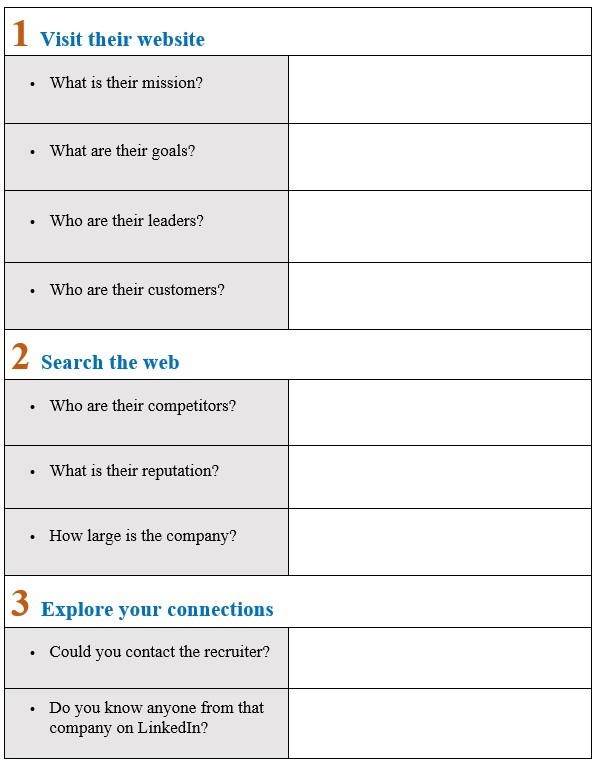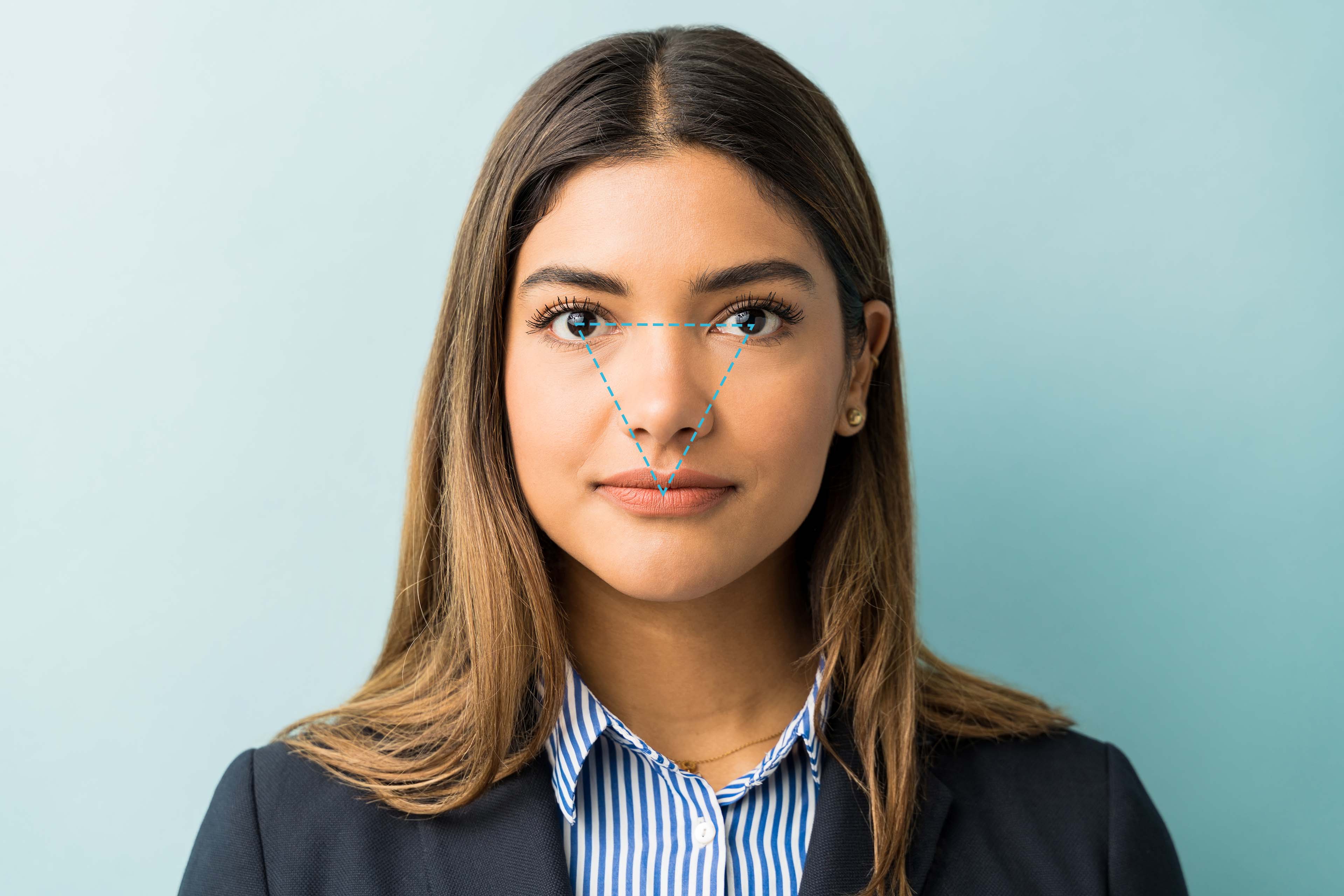Introduction
Far and away the best prize that life offers is the chance to work hard at work worth doing. —Theodore Roosevelt
The pursuit of successful employment and a thriving career are still challenges that many adults face. The hardest part, aside from waiting for the call for an interview, is the interview itself! So many emotions surrounding that eventful day – what to wear, how to be prepared, and how to sell yourself without overstating your abilities and talents.
With our tutorial, we want to send everyone into the interview room (or potentially virtual interview room) prepared and confident. You know you have skills and talents to offer to the employer, and you know you are the best fit for the position, so now the preparation you complete for that interview will ensure the employer knows it too.
We break down the four phases of an interview process: Preparation, What to Wear, How to Present Your Best Self, and How to Follow Up.
In following this simple outline, you will have the best opportunity to wow your future employer and solidify that you are the best candidate. Regardless of this being your 7th interview or your 37th, we want to provide you with the game plan for how to walk in with confidence.
The following video provides an introduction to job interview preparation.
https://www.youtube.com/watch?v=aAHKkBxrVoY
Researching the company
Always enter an interview with knowledge about the company. You could be their newest employee, after all. Recruiters and interview panel members will be impressed with your knowledge and interest in the position. Employers want to know and feel that you are passionate and confident in your abilities to fit the position and there is no better way to get this across than by showing you know are familiar with the company's mission, culture, customers and competitors.
Use this checklist to search the company you selected from Fortune’s list.
 Always enter an interview with knowledge about the company. You could be their newest employee, after all. Recruiters and interview panel members will be impressed with your knowledge and interest in the position. Employers want to know and feel that you are passionate and confident in your abilities to fit the position and there is no better way to get this across than by showing you know are familiar with the company's mission, culture, customers and competitors.
Always enter an interview with knowledge about the company. You could be their newest employee, after all. Recruiters and interview panel members will be impressed with your knowledge and interest in the position. Employers want to know and feel that you are passionate and confident in your abilities to fit the position and there is no better way to get this across than by showing you know are familiar with the company's mission, culture, customers and competitors.
The following video outlines how to research a company before a job interview.
https://www.youtube.com/watch?v=iDcDwEgDM7E
Dress for the interview
"While your qualifications obviously matter most, your first impression with an employer is also vitally important. In fact, according to the Twin Group, 50% of interviewers think that a candidate can be eliminated for the position due to the way they dressed, acted or walked through the door."
"A clean, polished look can be reassuring to prospective employers. Research the organization’s dress code policy and company culture. Remember that an interview often requires more professional attire than you might wear after being hired."
When dressing for an interview, it is best to dress conservatively. Keep in mind that all interviews start with a bang! So make sure you’re ready when you step into the room and impress them from the start.
During the interview
Body Language
Did you know that your body language speaks to people before you say a single word? How you stand, how you sit, how you cross your arms, and how you cross your legs, all tell the interviewer about you.
In this section, we will look at some do’s and don’ts of body language during an interview.
Here are some researched tips to remember for your next job interview.
Sit up straight and tall all the way back in your seat versus slumping over or slouching. You want to show that you are interested in what the speaker has to say. Research shows that you can lean forward as a way of showing engagement.

Eye Contact- Research varies slightly with eye contact; however, the consensus is to not avoid it but look at the direction of the eyes between the eyes, nose and mouth area.

Using hand gestures while speaking as another way of showing engagement in the conversation.

Nodding your head while speaking is another way of showing engagement in the conversation.
Lean in during the conversation to show attentiveness and engagement with the interviewer.
Interview Questions
Now that you are aware of your body language during the interview, let us look at what type of questions to expect during the interview. There are different behavioral interview questions that the interviewer will ask during the interview. The organization asks these questions to see how compatible you are with their company. The questions cover areas of teamwork, time management, communication, motivation and values. So be prepared to examples of specific situations that you have been in where you had to use certain skills.
One method research shows to assist you with answering these questions is to use the STAR Interview Method. STAR is an acronym that stands for situation, task, action, and result. Using this acronym when answering behavioral interview questions is a way of organizing your thoughts while providing a detailed specific answer.
Let’s look at what each letter means.
S- situation: establish the scene while giving important details of the example.
T- task: describe your responsibilities in that situation
A- action: explain the actions taken to address the situation
R- results: share the outcomes your actions achieved
Below is a list of common sample behavioral questions you should be prepared to answer.
Teamwork Talk about a time when you had to work closely with someone whose personality was very different from yours. Give me an example of a time you faced a conflict while working on a team. How did you handle that? Describe a time when you struggled to build a relationship with someone important. How did you eventually overcome that? |
Time management skills Tell me about a time you had to be very strategic in order to meet all your top priorities. Describe a long-term project that you managed. How did you keep everything moving along in a timely manner? Sometimes it’s just not possible to get everything on your to-do list done. Tell me about a time your responsibilities got a little overwhelming. What did you do? Tell me about a time you set a goal for yourself. How did you go about ensuring that you would meet your objective? |
Communication Skills Give me an example of a time when you were able to successfully persuade someone to see things your way at work. Tell me about a time when you had to rely on written communication to get your ideas across to your team. Give me an example of a time when you had to explain something fairly complex to a frustrated client. How did you handle this delicate situation? Tell me about a successful presentation you gave and why you think it was a hit. |
Motivation and Values Tell me about your proudest professional accomplishment. Describe a time when you saw some problem and took the initiative to correct it rather than waiting for someone else to do it. Give me an example of a time you were able to be creative with your work. What was exciting or difficult about it? Tell me about a time you were dissatisfied with your work. What could have been done to make it better? |

The following videos will help you in preparing for the interview:
Bad body language behaviors to avoid
https://www.youtube.com/watch?v=sXAHwa1CWYw
Body language tips to impress at your next job interview
https://www.youtube.com/watch?v=PCWVi5pAa30
Common Interview question and answers - Job Interview Skills
https://www.youtube.com/watch?v=1mHjMNZZvFo
Competency-based interview questions and answers
https://www.youtube.com/watch?v=BG62DsJo3ZQ
After the interview
You’ve just completed the interview. You nailed it! Now what?
Something that may seem like a relic from days of yore that you want to be sure to partake of during your interview process is a timely and sincere follow-up thank you.
Whether it be a quick email or a handwritten note (still acceptable and appropriate, depending on several factors), you want to make sure you don’t overlook this business etiquette must-do. In the fast-paced and virtual world of today, this five-minute follow-up will help to leave a positive lasting impression. This shows you are sincerely interested, you value your interviewer’s time, and your follow-through is on-point.
How you dress and how you answer questions (and ask!) during the interview process are critical to conveying your superior positioning to fulfill the expectations outlined in the job posting. The final touch, though, is to show the interviewer(s) your interpersonal skills and your emotional intelligence.
Employers are looking for candidates with the business acumen to fulfill the daily work requirements, but the other daily requirements of a job that are more understated and not something clearly expressed in a resume is the people skills and soft skills that a candidate brings to the work environment.
Even in a virtual working environment, interpersonal relationships are key to any company's success, and creating valuable lasting personal connections is a must. A solid way to convey your social competence is through your thank you follow-up.
Final Takeways
Now that you have prepped for the big day, we want to leave you with some closing thoughts about the process as a whole. While building your foundation for success, it is important to see how each piece of the process is bringing out your best opportunities to showcase your skills.
The series of steps we've outlined show you just how important it is to follow through with your whole self as you maneuver through the application and interviewing process. From on the onset of the application process, keep in mind that a prospective employer is looking for the whole candidate to fill their position - someone with the appropriate educational and/or professional experience, as well as someone who has the soft skills to relate with people, work in potential team environments and contribute positively to achieving goals from the company perspective.
As you pursue your next career move, know that you have many tools at your disposal to help you feel your best in this exciting endeavor.
The following video outlines a job interview simulation. You may use it for preparation.
https://www.youtube.com/watch?v=srw4r3htm4U
Sources:
Interview Process Training, (oercommons)
Author(s): Sarah Sandoval, Casey Herko, Terri Kelly, Coleen Morris
https://www.oercommons.org/courseware/lesson/73087/overview?section=6